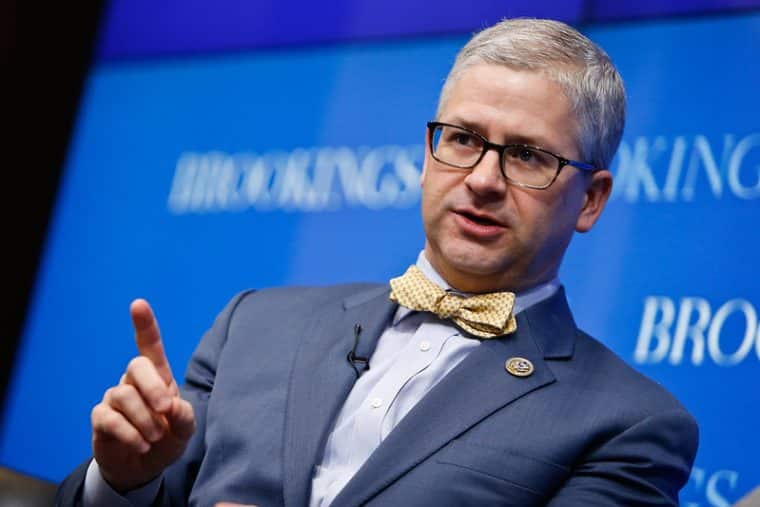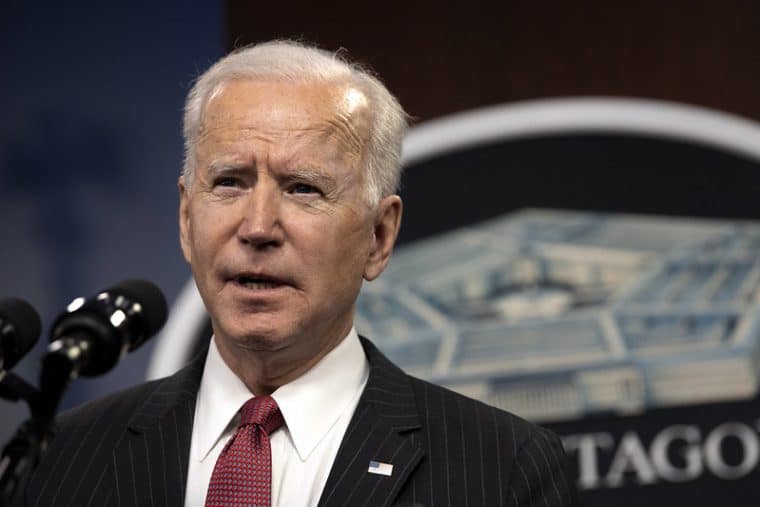In a move that could totally reshape the regulatory landscape for digital assets in the United States, the House of Representatives has passed the landmark Financial Innovation and Technology for the 21st Century Act (FIT21), a.k.a. FIT21, with significant bipartisan support.
The bill, which aims to establish a comprehensive framework to regulate the cryptocurrency industry, secured 279 votes in favor and 136 against, marking a significant victory for crypto advocates and innovators alike.
The FIT21 bill, led by Republican Representatives Patrick McHenry, French Hill, and Dusty Johnson, is seen as a “historic step” in the ongoing effort to provide clear regulations and proper consumer protections for the fast-changing digital asset landscape. The crypto industry has repeatedly asked the SEC for more clarity to ensure compliance with the law, but the SEC has largely not provided it, claiming that the current system is sufficient.
The approval of FIT21 in the House shows that lawmakers are trying to balance encouraging innovation with protecting the interests of investors and the overall financial system. However, the battle isn’t finished, as there is still no similar bill in the Senate, and President Biden could veto it even if it passes both chambers.
Key Provisions and Implications of FIT21

At the heart of FIT21 lies a clear distribution of regulatory responsibilities between two key federal agencies: the Securities and Exchange Commission (SEC) and the Commodity Futures Trading Commission (CFTC).
The bill grants the CFTC expanded jurisdiction over digital commodities like Bitcoin (BTC) while clarifying the SEC’s authority over digital assets offered as part of an investment contract.
One of the bill’s most significant provisions is the establishment of a process that permits secondary-market trading of digital commodities that were initially offered as investment contracts.
This measure aims to provide a clear path for digital asset projects to raise funds while ensuring appropriate oversight and consumer protections.
Additionally, FIT21 introduces stringent disclosure and operational requirements for entities that operate in the crypto space like exchanges, crypto companies, and decentralized finance (DeFi) projects.
Digital asset developers will be obligated to provide accurate and comprehensive information regarding their projects’ operations, ownership structure, and overall governance structure. Failure to comply with these disclosure obligations could result in severe consequences. However, unlike other bills and provisions that have been considered in the past, these obligations are more feasible for most of the industry to comply with.
“Without this bill, digital asset innovation will continue to be filled with uncertainty. Today’s victory gets us one step closer to establishing clear rules of the road for developers in the industry so America can remain a global hub for tech and finance innovation,” commented Rep. Dusty Johnson (R) from San Diego.
What Would Change If FIT21 Passes?
For customer-serving institutions like exchanges, brokers, and dealers, FIT21 requires that they implement a broad range of measures designed to safeguard consumer interests. These entities will be required to segregate customer funds from their own, provide clear and transparent disclosures, and implement robust measures to mitigate potential conflicts of interest.
Moreover, they will be subject to comprehensive registration, disclosure, and operational requirements that aim to further enhance the overall integrity of the digital asset market.
Proponents of the bill argue that these provisions will not only strengthen consumer protections but also foster a more robust and resilient digital asset ecosystem.
By establishing clear rules and guidelines, FIT21 aims to attract and retain innovative companies and projects, positioning the United States as a global leader in the rapidly evolving world of decentralized finance and blockchain technology.
Meanwhile, one of the most prominent detractors of the bill, the democrat representative Maxine Waters from California argued that the bill enables projects that have already “made billions unlawfully” by selling crypto assets without permission to cleanse their operations in the eyes of regulators.
Industry Associations and Lawmakers from Both Allies Endorse FIT21
The passage of FIT21 in the House has been hailed as a positive milestone, not only for the crypto industry but also for the broader financial sector.
The bill’s bipartisan support, which included 71 Democrats joining their Republican counterparts in backing the legislation, showcases the growing awareness of the need to put in place a comprehensive regulatory framework for digital assets.
Representative Patrick McHenry, the lead sponsor of the bill and chair of the House Financial Services Committee, celebrated the vote as it provides the necessary regulatory clarity and robust consumer protections to allow the digital asset ecosystem to thrive in the United States.
Also read: The SEC Has It Out For Crypto and It’s Finally Getting Called Out For It By Judges and Lawmakers
“Clarity in digital assets is crucial. Today’s bipartisan passage of the Financial Innovation and Technology for the 21st Century Act is a significant milestone. It underscores the House Committees on Agriculture and Financial Services’ efforts to establish a much-needed regulatory framework,” McHenry stressed.
The bill has also harnessed widespread support from industry leaders and advocacy groups. The Blockchain Association, a prominent voice in the crypto space, described the House’s passage of FIT21 as “a watershed moment and badge of Congressional validation for the crypto industry in the United States.”
Top industry executives and leaders signed a letter last week that called for the creation of a clear regulatory framework and argued that the US was falling behind other countries in this sense. “It is crucial for the US to maintain its leadership in financial innovation,” the letter reads.
McHenry agrees with this view and advocates that FIT21 “catches [us] up so that we do not lose out on innovation policy to the Europeans, to the folks in the UK, to Singapore, to Japan, to Hong Kong.”
White House and Top SEC Official Opposes FIT21
While the House’s approval of FIT21 represents a significant victory for the crypto industry, the bill has faced opposition from some quarters, including the White House and certain Democratic lawmakers.

The Biden administration has expressed concerns about the bill’s insufficiency in protecting the interests of investors and consumers, although the administration did not explicitly threaten to veto it.
Also read: Best Crypto Lawyers of 2024 – Who Tops the List?
In a policy statement, the White House stated that it is “eager to work with Congress” on developing a comprehensive and balanced regulatory framework for digital assets.
However, SEC Chair Gary Gensler has been a vocal critic of FIT21 (and crypto in general), arguing that the bill could undermine decades of precedent regarding the oversight of investment contracts, potentially putting investors and capital markets at immeasurable risk.
Gensler has maintained that the existing laws and regulations are sufficient to govern the crypto industry and that the issue lies in non-compliance by certain players rather than a lack of clear rules.
FIT21 Faces a Major Hurdle in the Senate
With the House’s nod, FIT21 now faces its next hurdle in the Senate, where its prospects remain uncertain. Currently, there is no companion bill in the upper chamber and the level of support for such legislation among senators is unclear.
Only 70 House Democrats voted for the bill while 133 voted against it. Just 3 Republican House members voted no, but Democrats control the Senate and it’s harder to pass a bill there than it is in the House because of the filibuster. If opponents of the bill decide to filibuster FIT21, it would take 60 (out of 100) affirmative votes in a cloture vote to end it and bring it to a final vote.
The Road Ahead for FIT21 Is Murky at Best
Even if FIT21 clears the Senate, it may face further scrutiny and potential revisions before becoming law. The White House’s concerns about consumer and investor protections suggest that the administration may seek amendments or compromises to address these issues before Biden – or the next President, for that matter – signs it into law.
Furthermore, the bill’s provisions regarding the segregation of regulatory responsibilities between the SEC and the CFTC could spark turf wars and jurisdictional disputes, potentially complicating the implementation and enforcement of the proposed framework if it is finally passed.
Despite these challenges, supporters of FIT21 remain optimistic about the bill’s prospects. Representative French Hill, one of the bill’s co-sponsors, emphasized the significance of the House’s bipartisan approval, stating: “This legislation passed in a bipartisan manner, signaling that consumer protection and American innovation are priorities for lawmakers on both sides of the aisle.”
The former Speaker of the House, Nancy Pelosi, a massively influential figure in Capitol Hill, was among the many democrats who said yes to FIT21. Her endorsement could open up doors for the bill in the Senate as she has tremendous influence throughout the US political machine.
“FIT21 is a first step to establish a regulatory framework for digital assets – and it must be improved by working with the Senate and the Administration,” Pelosi commented.
She added: “While building a foundation for responsible innovation, we must take further action to strengthen guardrails for consumers, investors and taxpayers.”
As the legislative process continues, all eyes will be on the Senate and the potential for further amendments or compromises. Regardless of the outcome, the passage of FIT21 in the House has ignited a new chapter in the ongoing quest for a comprehensive regulatory framework for digital assets in the United States.